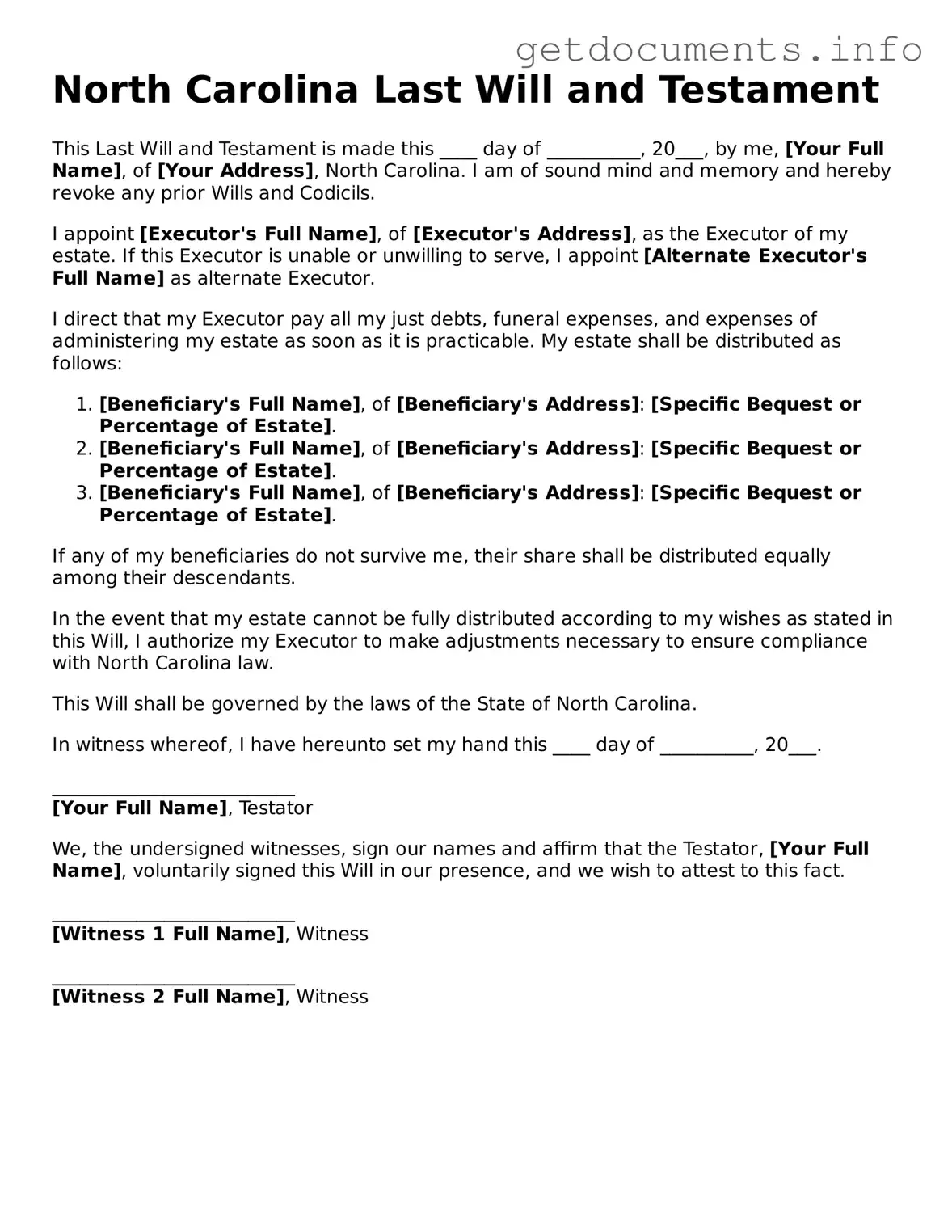Free Last Will and Testament Template for North Carolina
A North Carolina Last Will and Testament form is a legal document that allows individuals to specify how their assets will be distributed after their death. It ensures that your wishes are honored and can help prevent disputes among family members. If you're ready to create your will, start by filling out the form by clicking the button below.
Access Last Will and Testament Editor

Free Last Will and Testament Template for North Carolina
Access Last Will and Testament Editor
Got places to be? Complete the form fast
Fill out Last Will and Testament online and avoid printing or scanning.
Access Last Will and Testament Editor
or
⇩ PDF File
